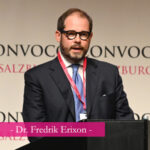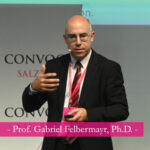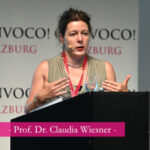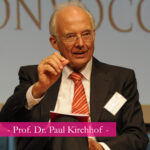In our Convoco Edition The Standing of Europe in the New Imperial World Order, and in our Podcasts some of our thinkers have offered their thoughts on the topics:
- Why the new nationalism is here to stay,
- why we can expect a new wave of globalisation despite protectionism,
why nationalism and globalisation need to be conceived together.
Nation states are the building blocks we should work with

Yael Tamir expects that national interests will be prioritised. “An essential part of a working social contract; is that all parties strive to cultivate the economy in order to create social capital that could benefit members, rewarding them for their collective efforts.” With the prioritization of national interests comes a more restrictive immigration policy.
“The nation state is not ideal[…] But for the time being alternatives are rare, and nation states are essential even for the purpose of international collaboration, the revival of Europe, or for ecological matters.” – Yael Tamir –
in “Why Nationalism – A European Identity,” Convoco Edition 2020.
There is growing skepticism about the principles and norms that defined much of the internationalist ambitions of the old era
This scepticism applies to both world trade and our international institutions, and it occurs in the context of states exhibiting a “growing occupation of redressing perceived injustices in global relations.” Emerging economies demand the global influence they think they deserve. The USA is also among those that feel cheated, withdrawing from international agreements. One example is the withdrawal from the North American Free Trade Agreement (NAFTA). – Fredrik Erixon –
in “The End of an Era, the Beginning of a New: Structural Change in the European Economy,” Convoco Edition 2020.
“[Given] the influence that national identity and nationalism may have on the new type of institutional framework […] my expectation would be that we will see many fewer international institutions and many more regional institutions in the future.”
“National power will become more present and relevant for shaping relations and settling disputes. There will be a larger space for discretionary economic authority.” – Fredrik Erixon –
in “Decline & Change: Global Institutions in Transformation,” CONVOCO! Podcast #7, 18.04.2020.
The new foundation of cross-border integration is digital
in “The End of an Era, the Beginning of a New: Structural Change in the European Economy,” Convoco Edition 2020.

The new foundation of cross-border integration is digital

During the period of hyperglobalisation (early 1990s-2008), global goods trade increased faster than industrial production. Since 2008 this is no longer the case. The process of globalisation has come to a halt.The Economist called this situation“slowbalization”.Protectionism is increasingly present since 2009. One reason for this development is the new systems competition between China and the USA. Systems competition is expressed in trade wars, economic isolationism, and tarrifs. However,the digitisation of the global economy can counteract this trend. – Gabriel Felbermayr –
see “Europe and the Global Economic Order,” Convoco Edition 2020.
The EU has no sovereign institutions
In the Coronacrisis we observe “a reactivation of key-elements of national sovereignty. The reason is relatively simple: the EU has no sovereign institutions.”
“The EU could not react collectively to large parts of this crisis. Therefore, it’s not right to talk of nationalist action in this case.” – Claudia Wiesner –
in “Die EU zwischen Realpolitik und Ideal,” CONVOCO! Podcast #14, 23.05.2020

The individual would be delivered up to a world state

“State power can only do justice to the citizen if the state thinks and acts like a citizen, if it does not try to force the multiplicity of cultures into an almost uniform world culture, if the condition of democracy—a population that knows its own identity—remains a reality. The importance of the plurality of the almost 200 states on this earth becomes particularly relevant to the individual who wants to escape the power of the regime that is currently determining his life. He can emigrate, immigrate, and seek asylum. If there were only one world state that, according to statistical probability, would probably look more like a dictatorship than a democracy, then such a state could seek out this individual in any corner of the world. He would inevitably be delivered up to this regime.” – Paul Kirchhof –
in “Freedom: How to Deal with Uncertainty,” Dealing with Downturns: Strategies in Uncertain Times, Convoco Edition 2014.

